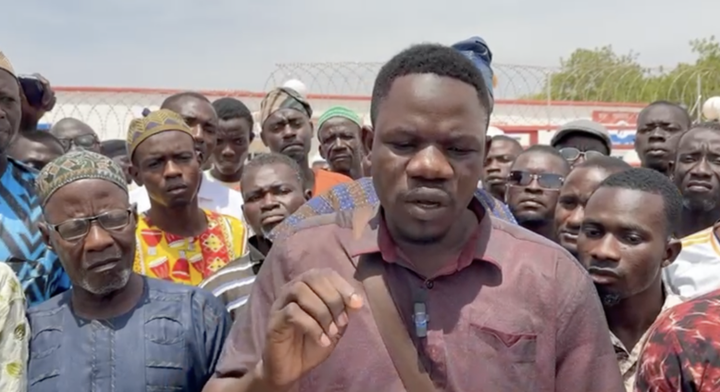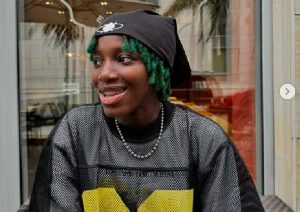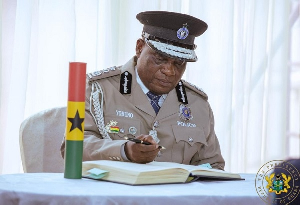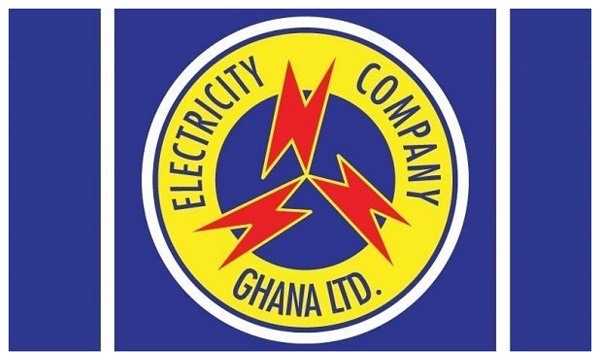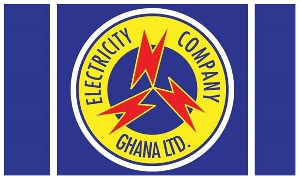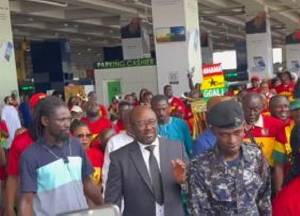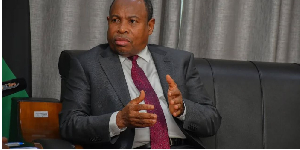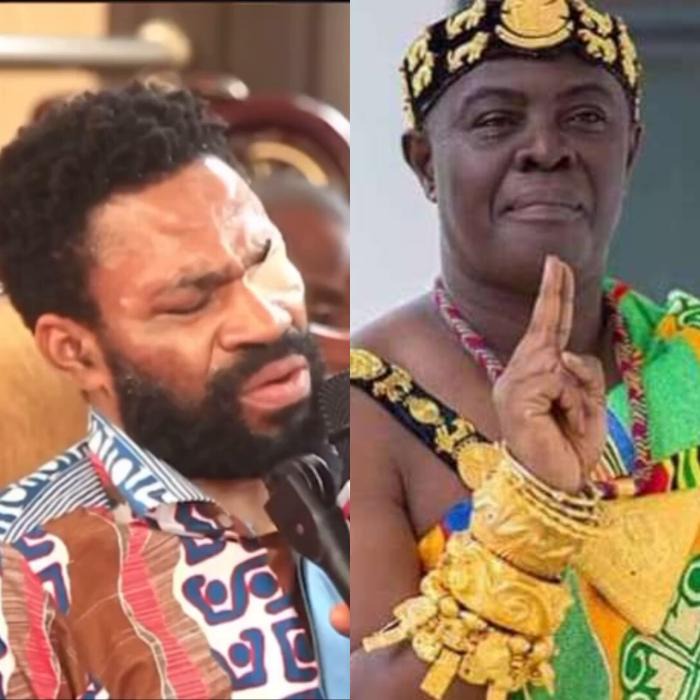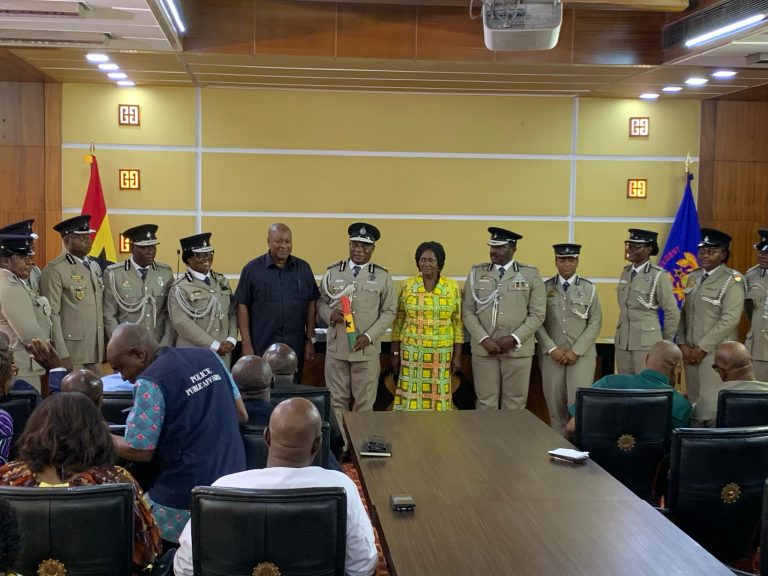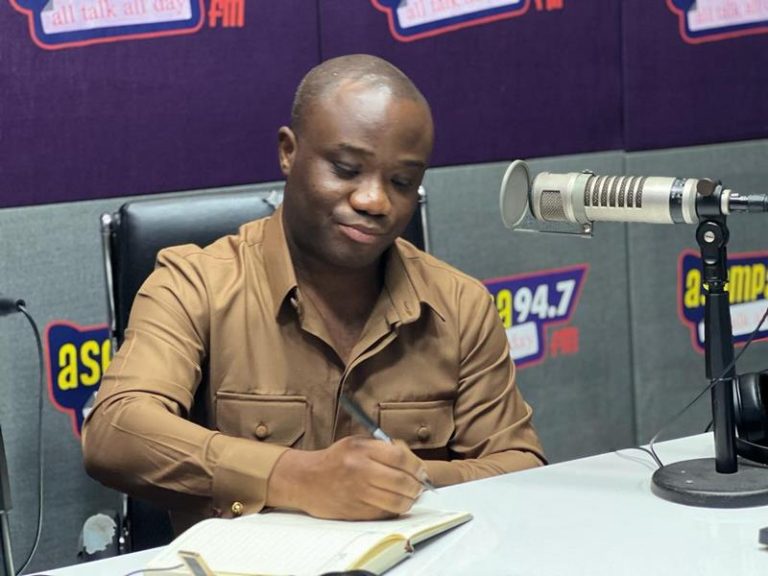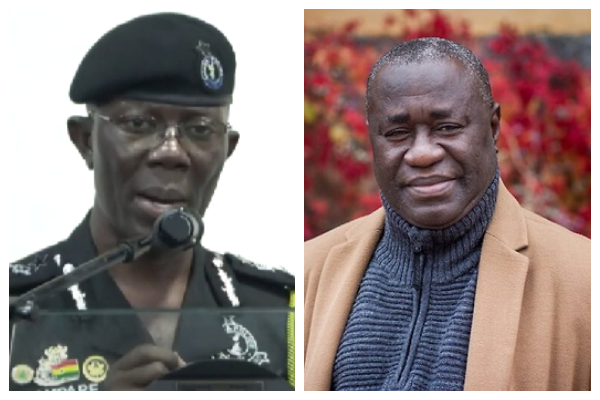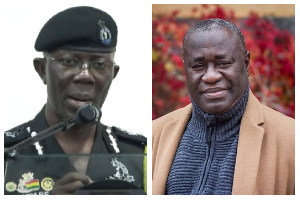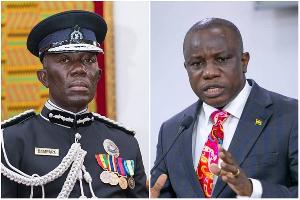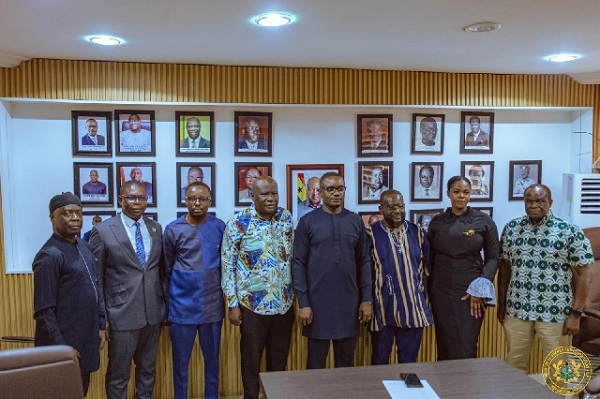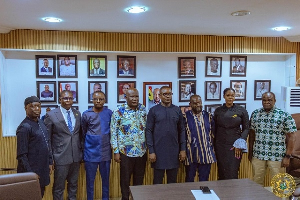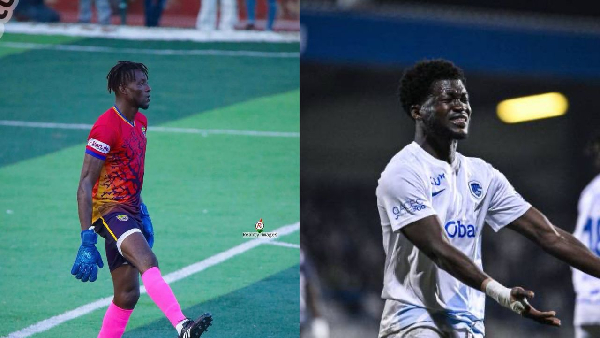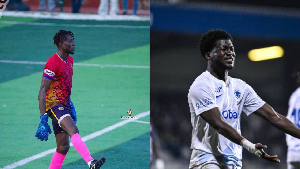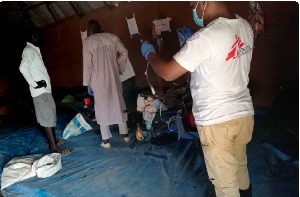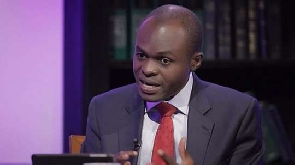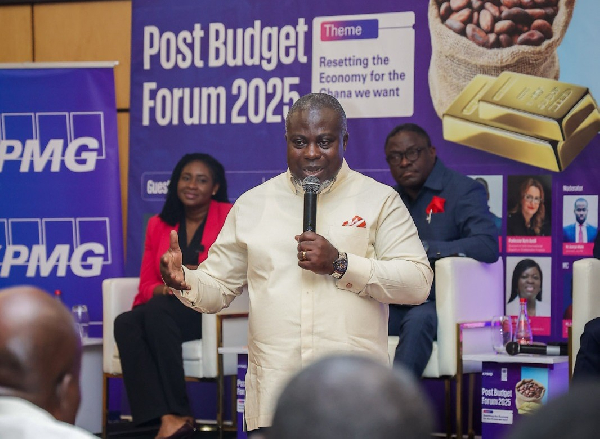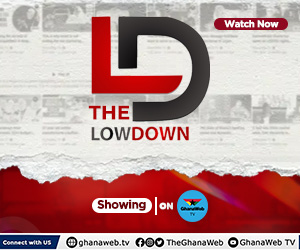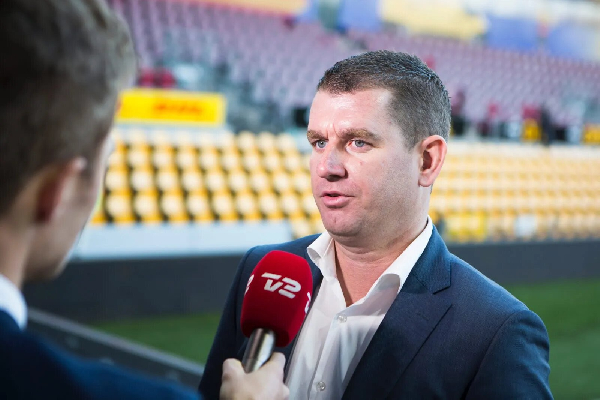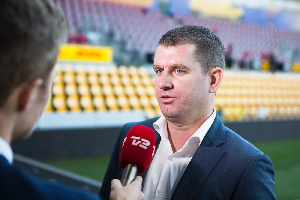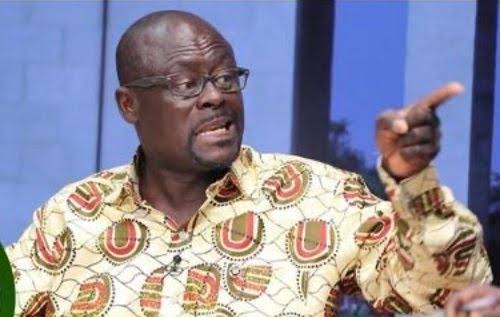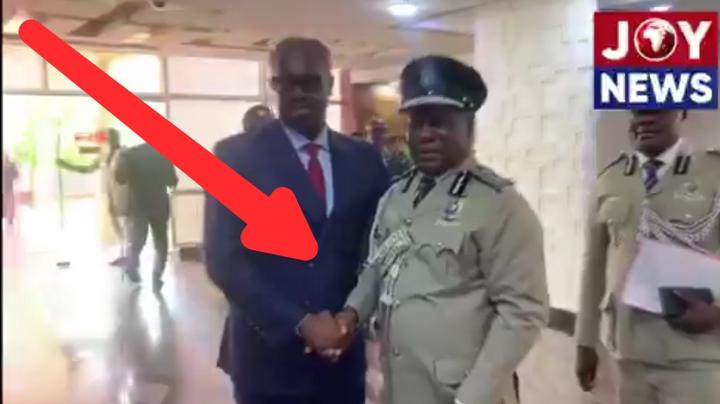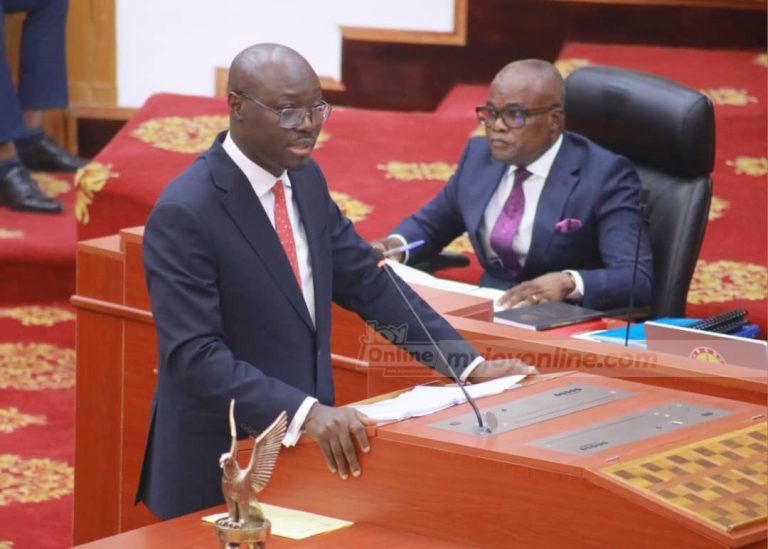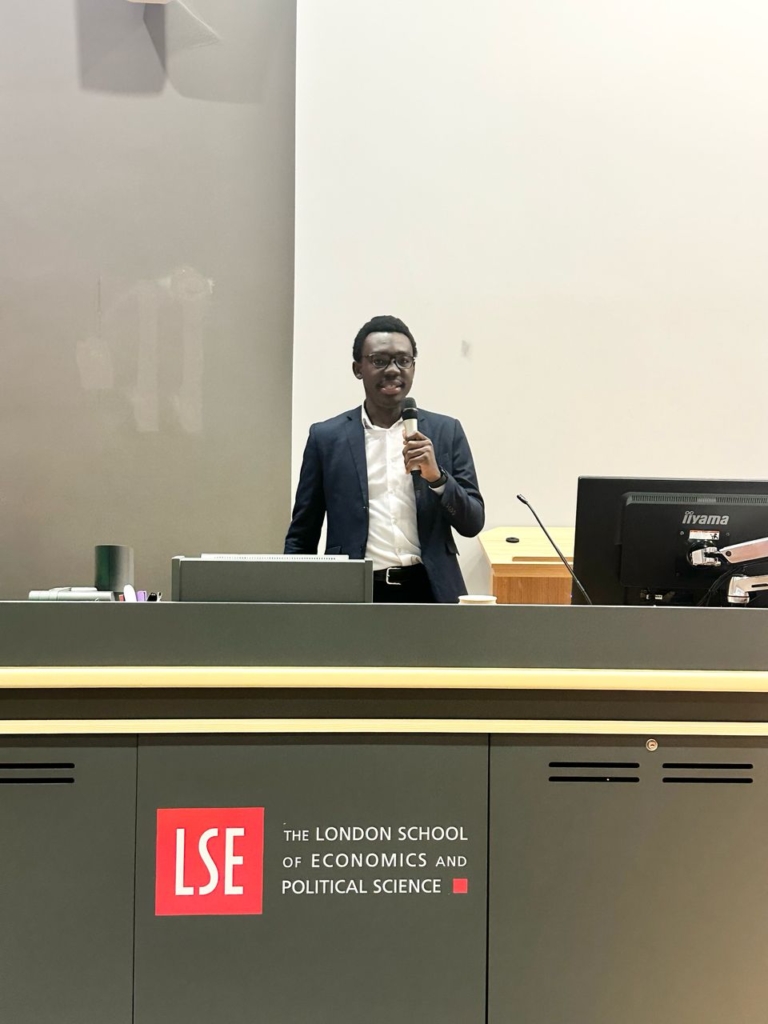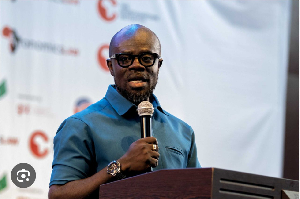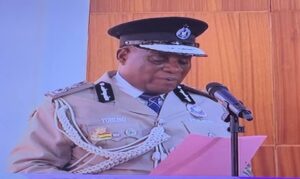EXECUTIVE SUMMARY
The green transition—the global shift from fossil fuel dependency to a low-carbon, sustainable economy—is no longer just an environmental necessity but an economic imperative. For Ghana, this transition is central to the “Government’s Reset Agenda”, aiming to create a resilient economy through renewable energy adoption, circular economy models, sustainable industries, and green innovation. With pressing challenges such as climate change, deforestation, illegal mining (galamsey), water/air pollution, and energy insecurity, embracing a genuine is Ghana’s pathway to economic growth, job creation, and global competitiveness. However, the success of this transition hinges on credibility, transparency, and enforcement of sustainability commitments.
Yet, greenwashing, which is the deceptive practice of falsely presenting a company, product, or policy as environmentally friendly without genuine sustainability efforts, threatens to derail this progress. While businesses and policymakers promote their sustainability initiatives, many exaggerate or misrepresent their environmental claims, misleading consumers and investors. Companies label their products as “eco-friendly” and “carbon-neutral” without independent verification, while government pledges at international climate forums often lack domestic enforcement. Without strict regulatory frameworks, consumer awareness, and accountability measures, greenwashing will distort Ghana’s sustainability landscape, allowing deceptive actors to profit while genuine climate solutions remain underfunded.
This article critically examines both corporate and state-led greenwashing in Ghana, exposing the gaps in policy, regulation, and enforcement that allow deceptive sustainability claims to persist. Unlike the European Union’s Green Claims Directive or Norway’s Eco-Labeling Laws, Ghana lacks strict verification requirements for environmental claims. Weak consumer protection laws, the absence of independent sustainability audits, and limited investigative journalism further enable misleading green marketing to flourish.
To combat greenwashing and safeguard the integrity of Ghana’s green transition, this article proposes urgent policy actions and enforcement mechanisms. A National Greenwashing Law should be enacted to mandate independent verification of all eco-claims, with strict penalties for false advertising—including hefty fines, business license revocations, and legal action against repeat offenders. Additionally, the establishment of a National Green Certification and Eco-Labeling Authority will ensure that terms like “organic,” “sustainable,” and “zero-waste” are backed by science, not marketing gimmicks. Large corporations must also submit annual sustainability reports detailing their carbon emissions, waste management practices, and renewable energy use, subject to third-party audits.
Beyond regulation, scrutiny is crucial in exposing greenwashing and ensuring corporate accountability. A nationwide effort should empower Ghanaians to identify and strengthen media oversight. Social media activism must also play a role, leveraging digital platforms to name, shame, and demand accountability from corporations and policymakers engaging in greenwashing.
Aligning Ghana’s anti-greenwashing strategies with global best practices, such as the EU Green Claims Directive and the U.S. Federal Trade Commission (FTC) Green Guides, will enhance international credibility and attract responsible investors. Trade agreements should enforce strict sustainability verification requirements for foreign companies operating in Ghana, ensuring that the country’s green economy is built on trust, not deception.
The green transition is an opportunity, not a façade—but only if it is backed by genuine action, not empty promises. The government must act decisively, businesses must uphold transparency, and consumers must demand accountability. Without bold interventions, Ghana’s green transition risks becoming a branding exercise rather than a transformative movement. The time for real change is now.
2. INTRODUCTION
Sustainability has become a powerful badge of honor in modern business—attracting consumers, securing investors, and elevating corporate reputations. The expanding discourse across academia, industry, and professional circles highlights green marketing as a pivotal tool for competitive advantage, with businesses with businesses leveraging eco-friendly branding to capture market share As consumers increasingly prioritize sustainability—demonstrating a willingness to pay a premium for eco-friendly products—companies flood the market with claims of carbon neutrality, green energy, and sustainable packaging.
However, purchasing a green product extends beyond a transaction; it represents an implicit pact between the consumer and the brand—one built on expectations of authenticity, transparency, and measurable environmental impact. But what happens when these promises prove deceptive? The breach of this trust can dismantle brand credibility, erode consumer confidence, and disrupt market dynamics. While an extensive body of scholarly literature explores green marketing, a fundamental question persists: to what extent does it represent genuine progress, and how much is merely a carefully crafted illusion?
Greenwashing has evolved into both a marketing and climate action gimmick, misleading stakeholders on genuine sustainability efforts. This misrepresentation distorts markets, weakens consumer trust, and shifts focus away from genuine climate action. Across the globe, it continues to undermine sustainability efforts, and Ghana is no exception. Without strong oversight and accountability, the country’s green transition risks being driven by rhetoric rather than tangible progress.
Common Greenwashing Tactics
Corporations employ various deceptive strategies to mislead consumers into believing their products or services are environmentally friendly:
1. Misleading Labels and Buzzwords – Terms like “eco-friendly,” “green,” “natural,” and “carbon-neutral” are frequently used without scientific proof or third-party verification.
2. Selective Disclosure – Companies highlight minor sustainable actions, such as reducing plastic packaging, while concealing larger environmental harms, such as high carbon emissions or unethical supply chains.
3. False Certifications – Some corporations create self-made “green” labels that mimic legitimate environmental certifications, misleading consumers about their sustainability standards.
4. The Hidden Trade-Off – A product may be marketed as sustainable based on one feature (e.g., “biodegradable”) while ignoring broader environmental drawbacks, such as excessive resource consumption during production.
5. Obsolete Claims – Companies make eco-friendly claims that hold little significance, such as promoting “CFC-free” products when CFCs have already been banned for decades.
6. Green Imagery and Branding – Many corporations use nature-inspired colors, tree symbols, or earthy tones in their branding to create an illusion of sustainability, even when their operations remain environmentally damaging.
7. Greenwashing at Global Climate Forums – Governments present ambitious sustainability commitments at international platforms like the UN Climate Change Conference (COP) while failing to enforce meaningful policies at home.
Examples of Government Greenwashing
- Brazil & the Amazon Deforestation Crisis (2019–2022)
- Despite pledging strong climate action at COP summits, deforestation in the Amazon accelerated under weak enforcement and pro-extraction policies. Illegal logging and land clearance surged, contradicting Brazil’s international commitments to biodiversity conservation and carbon emission reductions.
- China & Coal Expansion (2021)
- At COP26, China announced ambitious plans to reduce coal dependency and achieve carbon neutrality by 2060. However, it simultaneously approved dozens of new coal-fired power plants, increasing domestic coal consumption and undermining its climate pledges.
- UK & Offshore Oil Drilling (2023)
- While advocating for net-zero targets and championing global climate leadership, the UK government granted new licenses for offshore oil drilling in the North Sea. This contradiction raised concerns over the country’s commitment to phasing out fossil fuels.
To safeguard Ghana’s green transition from corporate and governmental deception, public awareness must be strengthened, and consumer protection laws reinforced. This article examines the prevalence of greenwashing in Ghana, the role of media in exposing false claims, and the policy interventions needed to combat deceptive sustainability marketing. By analyzing case studies, regulatory best practices, and actionable recommendations, it explores how Ghana can build a transparent and accountable green economy rooted in real sustainability, not corporate or state-led deception.
3. GLOBAL AND GHANAIAN PERSPECTIVE
Global perspective
Major corporations worldwide have been exposed for greenwashing, using deceptive sustainability claims to mislead consumers. The following cases illustrate the pervasiveness of this issue across industries:
1️. Volkswagen Emissions Scandal (2015): Volkswagen falsely marketed its diesel vehicles as low-emission while secretly installing software to cheat emissions tests. The deception resulted in over $30 billion in fines and a major reputational crisis.
2️. Nestlé’s Plastic Waste Misrepresentation (2018–2022): Nestlé promoted its plastic water bottles as 100% recyclable, yet many ended up in landfills due to inadequate recycling infrastructure. This misleading claim drew criticism for obscuring the true environmental impact of its products.
3️. Coca-Cola’s Plastic Pollution Contradiction (2021): Coca-Cola positioned itself as a leader in plastic waste reduction while remaining one of the world’s largest plastic polluters, according to Break Free From Plastic. Despite sustainability pledges, Coca-Cola was repeatedly ranked as the top plastic polluter globally.
4️. Fast Fashion Deception (Ongoing): Major brands such as H&M and Zara promote “eco-conscious” collections while maintaining unsustainable supply chains that contribute to excessive textile waste. In 2024, The Guardian reported that much of the UK’s fast fashion waste is dumped in Ghana, worsening pollution despite brands’ sustainability pledges.
5️. Florida Crystals Greenwashing Lawsuit (2025): Florida Crystals, a major sugar producer, faced a class-action lawsuit in the U.S. for allegedly misleading consumers by claiming to be climate-conscious while continuing environmentally harmful practices.
6️. European Commission Study on Greenwashing (2021): A study by the European Commission found that 42% of corporate sustainability claims worldwide were misleading or false, underscoring the scale of deceptive environmental marketing.
The case of Ghana
As Ghana pursues a green economy, the rise of unverified sustainability claims threatens real progress. Businesses and government institutions increasingly market eco-friendly initiatives, yet weak regulations and oversight enable deceptive greenwashing practices. From misleading corporate branding in recycling and agriculture to contradictions in state-led climate pledges, greenwashing distorts markets and erodes public trust. Without stronger policies, enforcement, and consumer awareness, Ghana’s sustainability transition risks being built on rhetoric rather than real environmental action.
A 2022 investigative report by Ghana Environmental Watch revealed that some plastic recycling companies in Ghana market themselves as “zero-waste” enterprises, yet a significant portion of their plastic waste still ends up in landfills or water bodies. Similarly, a 2021 report by the Ghana Cocoa Board indicates that palm oil and cocoa brands often promote their products as“sustainably sourced” but lack third-party certifications such as Fair Trade or the Rainforest Alliance, raising concerns about deforestation and unethical labor practices.
Greenwashing is not just an ethical concern; it has far-reaching economic, environmental, and consumer protection implications. The 2023 World Economic Forum (WEF) report warns that greenwashing threatens real sustainability efforts by misleading investors and policymakers, ultimately diverting critical funding away from legitimate green projects. When corporations or governments make false or exaggerated sustainability claims, they create a distorted market, where deceptive practices receive financial backing while truly sustainable initiatives struggle for resources. This undermines consumer trust, weakens climate policies, and slows the transition toward a genuinely green economy.
The 27th Conference of the Parties to the United Nations Framework Convention on Climate Change (UNFCCC-COP27), held in Sharm El-Sheikh, Egypt, in 2022, served as a crucial global platform where world leaders, policymakers, scientists, and climate advocates gathered to address the pressing challenges of climate change. The conference aimed to accelerate emission reduction targets, enhance climate finance mechanisms, and strengthen adaptation and mitigation strategies to support a just transition to sustainable economies. Countries made ambitious pledges to cut carbon emissions, scale up renewable energy investments, and bolster climate resilience, emphasizing the urgency of tangible action in response to the worsening climate crisis.
Ghana’s participation at the COP27 in Egypt in 2022 was a striking example of state-led greenwashing, where bold climate pledges on the international stage starkly contrasted with environmental inaction at home. With a delegation of over 322 officials, Ghana positioned itself as a climate leader, advocating for increased climate finance, renewable energy investments, and ambitious carbon reduction strategies. However, illegal small-scale mining—commonly known as galamsey—continued to devastate Ghana’s forests, rivers, and farmlands, even as government representatives stood before the world to champion sustainability. This glaring contradiction between rhetoric and reality raises serious concerns about the country’s commitment to genuine environmental progress.
The environmental damage from galamsey is staggering. According to Ghana’s Water Resources Commission, over 60% of major rivers, including the Pra, Offin, and Ankobra, are heavily polluted due to illegal mining operations. Data from the Forestry Commission shows that between 2018 and 2022, Ghana lost more than 10,000 hectares of forest cover directly to mining activities, accelerating deforestation and threatening biodiversity. The Ghana Cocoa Board has also warned that cocoa production is under threat, with an estimated 2% decline in cultivated areas due to land degradation caused by mining. Despite these alarming statistics, enforcement efforts remain weak, and government actions have been largely symbolic. The contradiction between Ghana’s climate diplomacy and its failure to address environmental destruction at home exposes a troubling pattern of greenwashing—one that risks eroding both domestic and international confidence in the country’s sustainability agenda.
The economic and social consequences of greenwashing are severe. It erodes public trust, making consumers skeptical of all sustainability claims, even legitimate ones. It distorts markets by allowing deceptive companies to gain an unfair advantage over businesses that invest in genuine sustainability. Furthermore, it slows policy progress, as governments struggle to differentiate between truly impactful environmental initiatives and misleading corporate rhetoric. A 2022 Nielsen report found that 78% of global consumers prefer to buy from environmentally responsible companies, yet greenwashing discourages them from making eco-conscious choices. In Ghana, where sustainability literacy remains low, misleading environmental claims exploit consumers’ limited access to accurate information. Without strong regulatory frameworks and consumer awareness initiatives, the country’s green transition risks being built on false promises rather than real progress.
4. THE ROLE OF PUBLIC AWARENESS AND MEDIA IN COMBATING GREENWASHING
Public awareness is a critical force in holding corporations accountable for their sustainability claims. When consumers are well-informed about the distinction between genuine sustainability efforts and deceptive marketing tactics, they can make more responsible purchasing decisions and demand transparency from businesses. This demand for accountability, in turn, pressures corporations to adopt authentic sustainability practices rather than rely on misleading greenwashing strategies. However, in Ghana, limited environmental literacy and inadequate access to sustainability education have allowed greenwashing to persist largely unchecked. Many consumers lack awareness of internationally recognized sustainability certification standards, such as Fair Trade, Rainforest Alliance, or Carbon Neutral certifications, making it easier for companies to mislead the public without significant scrutiny.
A 2022 UNDP report on green consumerism in Africa highlights the extent of this issue. The study found that 68% of consumers in Ghana trust corporate sustainability claims without verification, while only 22% are familiar with international eco-certifications like the Forest Stewardship Council (FSC) and the Roundtable on Sustainable Palm Oil (RSPO). Even more concerning, less than 10% of Ghanaian consumers can distinguish between credible sustainability labels and corporate self-created “green” labels. These findings underscore the urgent need for increased public education on sustainability, enabling consumers to detect greenwashing and advocate for corporate accountability.
The Role of Media and Investigative Journalism
Media, both traditional and digital, plays a pivotal role in exposing greenwashing and shaping public discourse on corporate sustainability. Investigative journalism, in particular, has been instrumental in revealing deceptive sustainability claims worldwide. High-profile cases such as the Volkswagen emissions scandal in 2015, where journalists and environmental researchers uncovered fraudulent emissions tests, and Nestlé’s plastic waste misinformation in 2021, where media reports exposed the company’s misleading recyclability claims, demonstrate the power of journalism in holding corporations accountable. Similarly, H&M’s “Conscious Collection” faced scrutiny in 2022 when journalists revealed that it lacked substantial sustainability improvements over its regular clothing lines.
In Ghana, however, investigative journalism focused on corporate sustainability remains underdeveloped. Few media outlets have dedicated environmental desks, and corporate eco-claims are rarely subjected to rigorous scrutiny. Strengthening media involvement in greenwashing detection is crucial to improving consumer awareness and fostering greater corporate responsibility. Journalists need to be equipped with the tools to analyze corporate environmental reports, cross-check sustainability claims, and investigate misleading eco-friendly marketing strategies.
Social media also presents a powerful tool for raising awareness about greenwashing in Ghana. Globally, platforms such as Twitter and Facebook have played an instrumental role in exposing deceptive corporate sustainability claims. In 2022, a viral Twitter thread in the United States exposed Coca-Cola’s misleading advertising, forcing the company to revise its messaging on sustainability. Similar social media activism in Ghana could significantly enhance public scrutiny of corporate environmental claims, enabling consumers to hold businesses accountable for greenwashing practices.
Challenges to Public Awareness and Media Scrutiny in Ghana
Public awareness and media scrutiny are crucial in combating greenwashing in Ghana, but several challenges hinder their effectiveness. A major obstacle is the lack of specialized training in sustainability journalism. Many Ghanaian journalists have limited expertise in analyzing corporate environmental reports, making it difficult to expose misleading sustainability claims. This knowledge gap weakens investigative efforts and allows deceptive corporate practices to go unchecked.
Government transparency on sustainability initiatives is also lacking, as agencies often fail to provide standardized environmental reporting. This makes it difficult for journalists and civil society organizations to verify official claims. Furthermore, corporate influence over media coverage is a significant concern. Many large corporations sponsor media outlets, discouraging critical reporting on their sustainability claims, leading to biased narratives and reduced scrutiny.
Consumer apathy and low environmental literacy further complicate efforts to hold corporations accountable. Many Ghanaians prioritize affordability over sustainability, making greenwashing a lesser concern. As a result, misleading environmental claims continue with little resistance. Addressing these issues requires strengthening sustainability journalism, enforcing transparency in government sustainability reporting, and increasing public education on environmental responsibility. Without these measures, deceptive green claims will persist, undermining genuine sustainability efforts in Ghana.
Strengthening Public Awareness and Media’s Role in Greenwashing Prevention
To combat greenwashing effectively, Ghana must prioritize consumer education and media empowerment. Nationwide sustainability literacy campaigns should be launched through government partnerships with universities, NGOs, and media organizations to educate the public on detecting deceptive green claims. Public workshops and awareness programs can help consumers distinguish between genuine sustainability efforts and corporate deception.
Investigative journalism must also be strengthened. Media houses should establish dedicated environmental desks and provide journalists with training in analyzing corporate sustainability reports. Collaborations with international media can offer financial and technical support to enhance investigative capacity.
Digital platforms such as Twitter, Facebook, and TikTok can be leveraged to expose false sustainability claims and engage the public in holding corporations accountable. Encouraging consumers to report misleading green claims online will help crowdsource accountability and pressure businesses to adhere to genuine environmental standards.
By increasing public awareness and strengthening media oversight, Ghana can ensure corporate transparency and consumer protection, ultimately fostering a truly sustainable green transition.
5. STRENGTHENING CONSUMER PROTECTION POLICIES IN GHANA
Greenwashing flourishes in weak regulatory environments where consumer protection laws lack specific provisions to address deceptive environmental claims. Without a robust legal framework and enforcement mechanisms, corporations can mislead consumers about their sustainability efforts without consequences.
Currently, Ghana’s Consumer Protection Act, 2023 (Act 1105) and the Environmental Protection Agency Act, 1994 (Act 490) provide general guidelines on consumer rights and environmental governance. However, neither explicitly defines or regulates greenwashing. This legal gap allows businesses to promote vague sustainability claims without verification, making it difficult for consumers to distinguish genuine eco-friendly products from misleading ones.
By contrast, other jurisdictions have implemented strict anti-greenwashing policies. The European Union’s Green Claims Directive (2021) requires companies to provide scientific proof for sustainability claims, with penalties for non-compliance. Norway’s Truth in Eco-Labeling Law (2022) bans vague environmental terms like “eco-friendly” unless supported by verifiable evidence. Similarly, Germany’s Sustainable Advertising Law (2023) mandates third-party verification for all corporate environmental claims. If Ghana is to prevent widespread greenwashing, similar policies must be developed to strengthen consumer protection in the country’s green economy.
Regulatory Gaps and Challenges in Ghana’s Green Economy
Ghana’s pursuit of a sustainable economy is hindered by significant regulatory gaps that permit deceptive environmental marketing practices, commonly known as greenwashing.
Absence of Standardized Eco-Labeling
Unlike regions such as the European Union, Ghana lacks a government-approved certification system for sustainability claims. This void allows businesses to employ self-created green labels without third-party verification. For example, some food products are marketed as “organic” or “sustainably sourced” without certification from recognized bodies like Fair Trade or the Rainforest Alliance. This practice misleads consumers and undermines genuine sustainability efforts.
Inadequate Corporate Sustainability Reporting
Ghana lacks mandatory environmental disclosure laws, unlike jurisdictions where transparency in corporate sustainability reporting is legally enforced. As a result, many businesses opt out of reporting key environmental impact metrics, including carbon emissions, waste management practices, and renewable energy adoption. This regulatory gap hinders accountability, making it difficult to accurately monitor, assess, and track the country’s true progress toward sustainability goals.
Lack of Oversight in Environmental Advertising
Ghana’s advertising regulations lack explicit provisions for regulating environmental claims, allowing corporations to market misleading sustainability messages without accountability. As a result, businesses can promote eco-friendly branding without undergoing independent verification. For instance, in 2021, a major bottled water brand falsely advertised itself as a “zero-waste” enterprise, yet investigations uncovered ongoing plastic waste disposal in unauthorized locations. The absence of strict oversight and enforcement mechanisms enables such unchecked greenwashing practices, misleading consumers and exacerbating environmental harm.
Weak Penalties for False Sustainability Claims
The absence of stringent penalties for greenwashing in Ghana allows deceptive marketing practices to persist. Unlike the European Union, where companies can face substantial fines for misleading environmental claims, Ghanaian businesses engaging in such practices often do so without fear of significant legal or financial repercussions. This regulatory leniency fails to deter greenwashing and undermines consumer trust.
To combat greenwashing and promote genuine sustainability, Ghana should consider implementing the following measures:
i. Establish a National Eco-Labeling Authority: Develop a standardized certification system to authenticate sustainability claims, ensuring that terms like “organic” and “eco-friendly” are used accurately and transparently.
ii. Mandate Corporate Environmental Reporting: Enforce laws requiring companies to disclose comprehensive environmental impact data, including carbon footprints and waste management strategies, to enhance transparency and accountability.
ii. Regulate Environmental Advertising: Amend advertising laws to include specific provisions against unverified green claims, thereby protecting consumers from misleading information.
iii. Impose Strict Penalties for Greenwashing: Introduce substantial fines and legal consequences for businesses found guilty of making false sustainability claims, deterring deceptive practices and fostering a culture of corporate responsibility.
By addressing these regulatory deficiencies, Ghana can strengthen its commitment to a truly sustainable and transparent green economy.
6. LESSONS FROM OTHER COUNTRIES
Several countries have implemented robust legal frameworks to combat greenwashing, offering models that Ghana could consider adopting:
European Union: In January 2024, the EU approved the Directive on Empowering Consumers for the Green Transition, which prohibits generic environmental claims like “eco-friendly” or “green” unless substantiated by verifiable evidence.
United Kingdom: The UK’s Competition and Markets Authority introduced the Green Claims Code in September 2021, outlining clear guidelines to prevent misleading environmental claims and protect consumers from deceptive marketing practices.
Australia: The Australian Securities and Investments Commission (ASIC) has been actively enforcing actions against greenwashing, including imposing significant fines on companies for false sustainability claims.
Canada: Canada’s Competition Bureau, in collaboration with the Canadian Standards Association, discourages vague environmental claims, mandating that companies provide readily available data to support their assertions.
By examining these international approaches, Ghana can develop and implement policies that effectively prevent corporate greenwashing, protect consumers, and ensure that sustainability claims are based on verifiable environmental impact.
7. RECOMMENDATIONS AND POLICY ACTIONS
1. Strengthening Government Regulations
Ghana must enact a National Greenwashing Law requiring companies to scientifically verify sustainability claims through independent audits. False claims should carry strict penalties, including fines, advertising bans, and business license revocations. The EPA must be granted stronger enforcement powers to investigate and penalize misleading green marketing.
A National Green Certification and Eco-Labeling Authority should be established to regulate sustainability labels and mandate third-party verification before businesses can market products as “organic” or “eco-friendly.” Large corporations must submit annual, independently verified sustainability reports detailing emissions, waste management, and renewable energy usage.
2. Enforcing Stronger Penalties for Greenwashing
To deter deceptive environmental claims, tiered penalties should be introduced:
- First offenses: Fines ranging from GH₵50,000 – GH₵500,000 and mandatory correction of misleading claims.
- Repeated violations: GH₵500,000 – GH₵1 million fines, public disclosure, and a one-year advertising ban on sustainability claims.
- Severe violations: Fines exceeding GH₵1 million, corporate blacklisting, license revocations, and legal action.
A Greenwashing Enforcement Tribunal should be established to investigate and prosecute cases of deceptive green marketing.
2. Enhancing Corporate Responsibility
Companies must be required to undergo independent environmental audits before making sustainability claims. The Ghana Standards Authority (GSA) and Food and Drugs Authority (FDA) should mandate full supply chain transparency and introduce mandatory third-party certification for green claims.
Businesses guilty of greenwashing should be disqualified from receiving government incentives, tax breaks, and green finance opportunities.
3. Raising Consumer Awareness and Public Education
A nationwide greenwashing awareness campaign should educate consumers on detecting false sustainability claims. Media, universities, and NGOs should collaborate to teach businesses ethical green marketing while integrating sustainability education into school curricula.
A national consumer complaint platform should be launched, allowing the public to report false environmental claims, with violators publicly listed by the Consumer Protection Agency.
4. Strengthening Media Oversight and Investigative Journalism
Media oversight must be enhanced through green journalism training programs in collaboration with the Ghana Journalists Association (GJA). Investigative journalism should receive financial support for deeper corporate scrutiny.
A national fact-checking platform should verify corporate environmental claims, while social media activism (#StopGreenwashingGhana) should expose deceptive sustainability claims.
5. Aligning Ghana with Global Best Practices
Ghana must harmonize anti-greenwashing regulations with international standards, including:
- The EU Green Claims Directive (requiring verifiable proof for green claims).
- The U.S. FTC Green Guides (defining misleading environmental marketing).
- The UN SDGs (establishing sustainability benchmarks).
Trade agreements must enforce strict sustainability verification for foreign companies operating in Ghana.
Greenwashing threatens Ghana’s sustainability goals by misleading consumers and diverting resources from real climate action. Strict laws, strong penalties, and rigorous corporate audits must be enforced immediately.
The government must pass and enforce anti-greenwashing laws, businesses must commit to real sustainability, and consumers must demand corporate transparency. Ghana must act now to build a green economy rooted in trust, accountability, and measurable impact—not deception.
8. CONCLUSION
Ghana’s green transition is at risk of being undermined by greenwashing, which misleads consumers, distorts markets, and weakens environmental progress. Without urgent action, false sustainability claims will erode public trust, divert critical resources from real climate action, and slow the country’s ability to achieve its sustainability goals.
To address this challenge, a multi-stakeholder approach is necessary. The government must implement and enforce strict anti-greenwashing regulations, ensuring corporate accountability through independent sustainability verification, transparent reporting, and substantial penalties for deceptive claims. Businesses must move beyond superficial eco-branding and commit to genuine, measurable sustainability practices. Meanwhile, consumers and the media must play a proactive role in holding corporations and policymakers accountable through awareness, investigative reporting, and advocacy.
With decisive policy action, corporate responsibility, and an informed public, Ghana has the potential to establish itself as a leader in sustainable business transparency across Africa. However, failure to act will leave the country vulnerable to a future where greenwashing continues to erode real progress, turning sustainability into nothing more than a marketing tool. The time for action is now—Ghana must choose transparency, accountability, and measurable impact to ensure a truly sustainable green economy for future generations.
–
The author is Dr Jacob Naabong Dapilah
Tel: 0267420241/0553799358
Email: [email protected]
DISCLAIMER: The Views, Comments, Opinions, Contributions and Statements made by Readers and Contributors on this platform do not necessarily represent the views or policy of Multimedia Group Limited.



